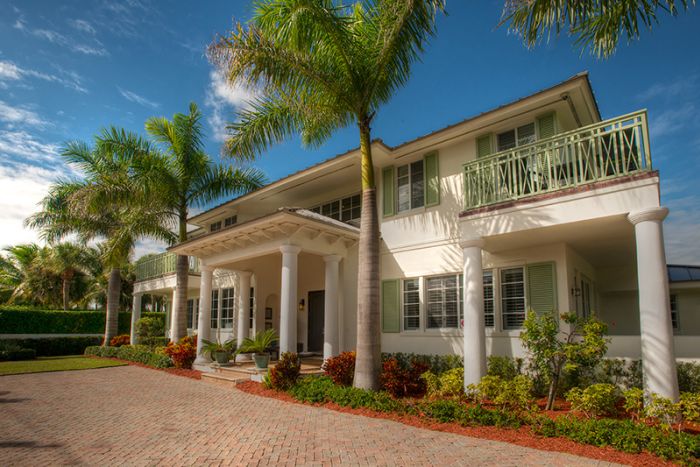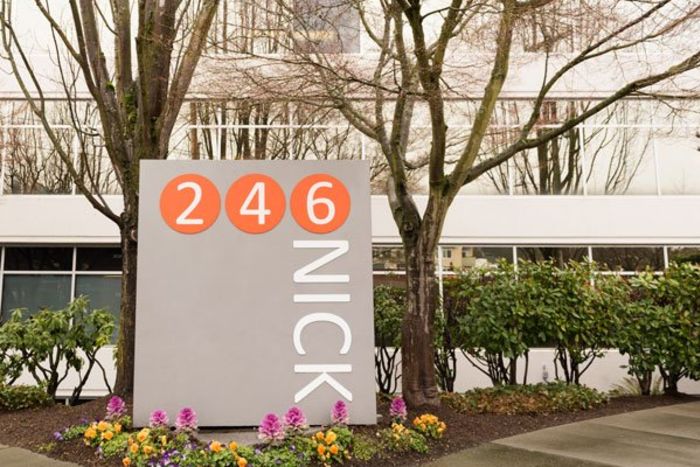As an LGBTQ+ person, it can be hard to find supportive, affirming healthcare. People in this community face unique barriers to treatment. You may struggle to find providers who are both willing and able to give you the care you need. In some cases, it can actually be dangerous to disclose certain aspects of your life to a doctor. And even staunch allies sometimes lack cultural competency, requiring clients to do the emotional labor of describing their own identities at every appointment. When you expect the very act of getting help to be such hard work, recovery can be daunting.
Fortunately, as time goes on, more and more healthcare providers are starting to understand the needs of the LGBTQ+ population. Information is readily available in ways it hasn’t always been, and people are actively learning what it means to be respectful. And it’s not just about reading up on theory. There are a number of luxury rehabs that cater to the unique needs of LGBTQ+ clients.
Addiction in the LGBTQ+ Community
Historically, research has shown that LGBTQ+ people are at higher risk for substance use disorders1 than other populations. A 2012 study found that “between 20 percent to 30 percent of gay and transgender people abuse substances, compared to about 9 percent of the general population.” This finding was supported by the National Survey on Drug Use and Health in 2015, which asserted that lesbian, gay, and bisexual people were “more likely than their sexual majority counterparts to have substance use and mental health issues.”2
Addiction is a mental health issue, and queer communities often lack access to effective mental health care. Recovery is the process of healing yourself as a whole person, reintegrating different aspects of your identity, and focusing on the parts of your life that bring you joy. In order to do that, it’s important to work with healthcare providers who encourage you to be the best and most authentic version of yourself. As time goes on, providers are learning more about what it means to do that for LGBTQ+ people. Thankfully, there are a growing number of resources available for LGBTQ+ people in the process of recovery.

What Is LGBTQ+-Affirming Care?
As with any demographic, LGBTQ+ affirming care is not one-size-fits-all. Skilled healthcare providers understand that there is more to you than your gender or sexuality. However, certain types of treatment are especially important to people with these identities.
Respectful Therapy
The goal of therapy is to become your best self, not to change or “fix” who you are. Culturally competent therapists honor their clients’ identities. By helping clients define and understand their own personal values, therapists encourage them to build joyful, sustainable lives.
It’s important to find a therapist who is willing to meet you where you are, whether or not you subscribe to dominant cultural norms. For example, the United Recovery Project offers LGBTQ+ clients “resources designed to address the unique challenges and needs of those within this community” and “a space where you can feel at home and respected.”
Medical Support for Trans Clients
When seeking any kind of medical care, trans clients may be concerned about the way prescriptions interact with hormone replacement therapy (HRT). Addiction recovery adds a deeper layer to this concern, because the detox process is yet another change in body chemistry. However, it’s absolutely possible to start recovery without losing access to the prescription medication you need.
Finding the right balance of medications can be hard, and it can take time. Some rehab facilities, like Caron Ocean Drive, have staff endocrinologists who work closely with transgender clients. These experts are there to ensure your access to gender-affirming care3 throughout the process of detox and recovery.
Body Image Therapy
Rehab isn’t just for substance addiction. Many people also attend inpatient programs for various mental health conditions, including eating disorders. For example, providers at The Emily Program Seattle aim to offer all clients a positive experience of treatment—including LGBTQ+ people.
The providers at this facility are well-trained in the nuances of gender-affirming care. According to one of their published resources, “16% of transgender individuals have been diagnosed with an eating disorder. Eating disorders in the transgender community4 may be partially attributed to the attempt to more closely match a person’s physical appearance to their gender identity. Transgender men may rely on their eating disorder to lose weight, and thus, lose feminine curves and appear more muscular. Transgender women may engage in disorder[ed] eating in an attempt to lose muscle and appear more petite.”

Chosen Family Therapy
For the LGBTQ+ community, “family” is a complex and often painful concept. Many of those in this demographic are closer to their chosen families than their families of origin. Whether your family is defined by shared DNA, experience, or values, your health has an impact on your loved ones. Because of this, family therapy can be an important part of recovery.
The providers at Caron Ocean Drive recognize both the importance and complexity of family in LGBTQ+ communities:
“Family engagement is critical to treatment success so we invite those you identify as your family of choice to take part in education that enables them to better understand substance use disorder, mental health disorders, and how to best support you in recovery as well as attend to their recovery and emotional health.“
LGBTQ+ Youth
Historically, it’s been difficult to find adequate health care for young LGBTQ+ people. At its worst, treatment was once intended to force these vulnerable clients into living inauthentic lives. Mental health care has come a long way since that time, and there’s still a long way to go.
Thankfully, there are now many resources available that aim to support LGBTQ+ youth in the process of coming out and growing into healthy adults. Providers today are proactively creating programs to support this population. With or without support from their families of origin, LGBTQ+ youth deserve high-quality care.
In particular, the providers at Paradigm Teen Treatment recognize that “One of the most vulnerable populations among youth today are LGBTQ teens.”6 This rehab center has a special focus on family therapy. They explicitly encourage parents to accept and support young people in the process of coming out. This is not just intended to heal family dynamics, but also to connect young clients with more community resources. Providers teach that when a family can accept a teen as they are, “it helps a community to do the same.”
At any age, LGBTQ+ clients face unique stressors. Culturally competent healthcare providers recognize that recovery will not make these hardships disappear. Instead, queer-friendly rehab programs are designed to help you navigate whatever life brings your way.

Treating Mental Health in LGBTQ+ Communities
Certain factors put LGBTQ+ people at higher risk7 for mental health concerns. Specifically, people in this demographic may face discrimination, harassment, a lack of access to adequate healthcare, and family rejection. These external stressors can exacerbate underlying mental health conditions. When your mental health takes a hit, it can be all too easy to return to unhealthy coping mechanisms.
With or without a diagnosed mental illness, many LGBTQ+ people experience minority stress.8 This state is the result of living under discriminatory conditions that are, according to researchers, “unique (not experienced by nonstigmatized populations), chronic (related to social and cultural structures) and socially based (social processes, institutions and structures).” Even people without severe trauma can be worn down by daily life in difficult circumstances. Minority stress is common among people who experience oppression,9 including queer and BIPOC communities.
People who experience more severe, specific trauma are likely to develop mental health disorders. For example, LGBTQ+ youth are at higher risk for PTSD.10 Many luxury rehabs offer trauma-informed care, which is designed to respect these clients’ unique needs and boundaries. Your providers will pay careful attention to your personal history, triggers, and treatment goals. This process encourages clients to understand the relationship between their trauma and substance use. The better you understand your own emotional experience, the better equipped you’ll be to handle stress in a healthy and sustainable way.
As prevalent as stress and trauma are among LGBTQ+ clients, no experience is universal. Many rehab facilities pride themselves on offering bespoke treatment, tailoring the program to suit each individual client. If you have a specific mental health concern, it may be helpful to find a program that offers treatment for co-occurring disorders. Remember: there are as many ways to heal as there are people in recovery. You have the right to find a rehab program that honors every aspect of your health and your identity.
Take Pride in the Healing Process
Navigating the healthcare system can be hard for anyone, and even harder for queer folks. Members of minority populations are often taught that asking for help means admitting your lifestyle is problematic, and that’s simply untrue. LGBTQ-affirming care is designed to honor and support you, just as you are. In the right rehab program, you can learn to let go of unhealthy behaviors, while still celebrating your authentic self.
To find a program that suits your unique needs, you can connect directly with a rehab facility that offers LGBTQ+-affirming care.
Frequently Asked Questions About LGBTQ-Affirming Rehab
What is LGBTQ+-affirming rehab?
LGBTQ+ affirming rehab is a type of rehab program designed specifically for people in the LGBTQ+ community. These programs aim to create a safe therapeutic environment where people can explore their issues without fear of retraumatization.
Why is LGBTQ+-affirming rehab important?
Members of the LGBTQ+ community face unique challenges when seeking treatment for addiction or mental health issues. These can include discrimination, lack of understanding, and lack of access to appropriate resources. Affirming rehab programs provide safe, supportive spaces where people can receive the care they deserve.
How do LGBTQ+-affirming rehab programs differ from traditional rehab programs?
LGBTQ+-affirming rehabs may take a trauma-informed approach to treatment that assumes a history of identity-based trauma. They may also offer LGBTQ+-only housing, groups, or entire programs. The goal of LGBTQ+-only spaces and LGBTQ-focused care is to allow LGBTQ+ clients to engage in therapy without the self-censoring that would stall progress in a mainstream treatment setting.



